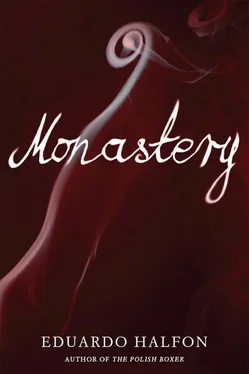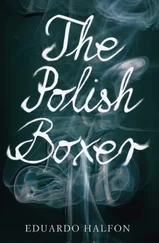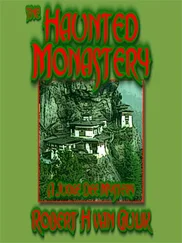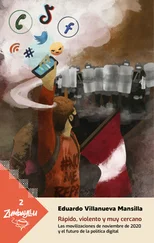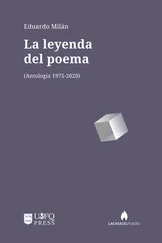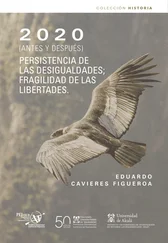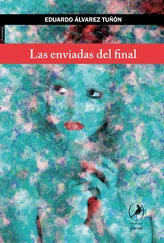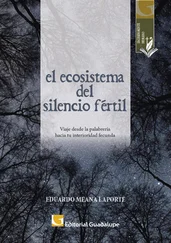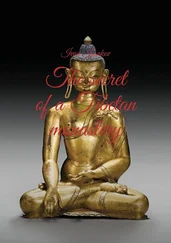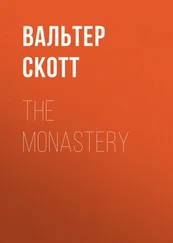The officer, perhaps for the first time, raised his eyes, and looked at me slowly, skeptically, as I held a booklet in each hand, a passport in each hand: the Guatemalan one in my right, the Spanish one in my left.
Excuse me, he said, and stood up. On his green khaki back the dark round patch of sweat was growing.
He walked slowly toward a bigger and more important desk, at which sat a bald gentleman, plump, with a thick ash-colored mustache and reading glasses, dressed in the same green khaki uniform. His boss, I presumed. The young officer handed him the passports and pointed at me and the two men began to go through my documents, comparing them, judging them, whispering I don’t know what. Suddenly, the older officer took off his reading glasses. He looked up and stared at me for a few moments. As though something in me had enraged him. Or alarmed him. Or as though trying to find something in my face, perhaps some detail or expression that would prove my identity. Then he lowered his gaze, handed my passports back to the young officer, and feeling for the reading glasses hanging around his neck, returned his attention to the papers on the desk.
Sign here, said the young officer no sooner than he had sat down, pointing at an empty line on the ledger, beside my name. I signed with relish, in a flowery, stylized hand. The officer stamped the ledger way too hard, maybe with the rage of the defeated, and handed me both passports. Next, he shouted toward the line of people who were waiting their turn behind me. I put everything inside the leather pouch, turned away unhurriedly and, without saying a word, as I was leaving the immigration office, already hearing the drops of rain on the corrugated tin plates of the roof, I noticed that the mustached officer was watching me gravely over the top of his glasses.
Outside, it was raining hard. I quickly dodged the sellers of chewing gum and other sweets, the sellers of sour oranges sprinkled with pumpkin seed, the sellers of Belizean dollars with wads of dirty bills in their hands and little nylon pouches tied around their waists, and I started running through the pelting rain to where I had left the old sapphire-colored Saab. As soon as I arrived, I opened the door and got inside and hurriedly stuck the key in and started the engine. I sat still, half-soaked in rain, or perhaps half-soaked in sweat, just listening to the sudden shower hit the bodywork, and to the thunder in the distance of the Petén jungle, and to the unbearable metallic clicking of a dead battery.
YOU’RE GOING TO HAVE TROUBLE finding a trucker who’ll help you here.
His accent sounded Salvadoran, or perhaps Nicaraguan. He was wearing crocodile-skin cowboy boots. His button-down shirt was open, and over his heart, in green ink, he had a tattoo of another heart with an arrow through it, encircled by a ribbon with somebody’s name. His woman, I presumed. Or one of his women. He had a long machete in a black leather sheath hanging from his belt. And immediately, as I saw him approach and smile at me with his silver teeth, I felt a flash of distrust and panic and I was about to close my eyes and say please, just the money, let me keep my credit cards and the rest of my papers. But he quickly greeted me and told me that his truck was that one over there, the white one, that he was headed for Mexico, that his name was Roldán. I didn’t want to ask if that was his first or last name. Nor did I want to ask what he was carrying in his truck.
I’d had to sit in the car for nearly an hour, waiting for the rain to subside. From time to time, I would open the door a little to air out the heat and my cigarette smoke (the electric windows, of course, were not working). But it was raining too hard and the water would rush in at once and so I had to fester in there for an hour, submerged in my own smoke and steam. On several occasions, I thought I saw — through the windshield and the sheets of rain — the mustached officer standing at the door of the immigration office, maybe watching the rain shower, maybe watching me.
No trucker here is going to give you a hand, said Roldán. My compañeros will say they’re in a hurry. He scratched his stomach. But they’re making it up, he said. They’re just a bit cruel.
With a couple of whistles, he summoned over a teenaged kid who was walking past. You, help me push, he told the teenager, who reluctantly agreed. You put it in neutral, Roldán shouted to me, and when I say, shift to second and try to start it up. We tried three times. The engine didn’t even respond.
Oh boy, said Roldán, widening his silver smile. That battery won’t go anymore, mi rey. The kid, without a word, had made himself scarce.
I got out of the car. I held the pack of Camels out to Roldán and he took a cigarette and we both stood there a moment, smoking in silence. The sun had come back out. In the distance, a veil of warm mist covered part of the mountain. Have you got jumper cables? he asked me suddenly. I think so, I said, in the trunk. My truck has a twenty-four-volt battery, he said. We’ve got to find a driver with a twelve-volt battery. Maybe we’ll be able to charge it up. He asked for another cigarette. For later, he said, and put it behind his ear. So where are you coming from? he asked, and I explained that I’d left the capital that same morning, that I was on my way to Belize, that I wanted to cross over to Belize, that I wanted to get to the white-sand beaches of Belize. Not with that battery, mi rey, he said, still smiling. But don’t you worry. We’ll figure it out right away. God willing.
Roldán stopped two truckers, and from their cabs both of them merely shook their heads and went on up the highway. Soon the owner of the truck that was parked next to me arrived. Roldán approached him and explained the situation and the guy said that yes, he had a twelve-volt battery but that he couldn’t give me a jump. Why not, old man? Roldán asked, and the guy just shook his head, reluctant. But Roldán was so insistent that the driver finally agreed. We connected the two batteries. The trucker started his engine, and we let it run for a few minutes. Nothing. Then we left it running a few minutes more, and I tried again, and again, nothing. The trucker detached the cables and got up into his cab and, almost offended by me, as though I’d stolen something from him, went on his way.
Roldán took out his cell phone and dialed a number. He asked for a tow truck. Don’t worry, he told me. It’s a friend, he said, who can quickly change your battery here in Melchor de Mencos, on the other side of the bridge, and you can continue on your way to Belize.
I felt something in my knees. Maybe impotence. Maybe a devastating solitude. Maybe the panic of being drawn, further and further, into a grand spiderweb of swindlers.
Roldán stood smoking beside me until his friend arrived with the tow truck and then he negotiated a price with him and warned him to treat me well. I thanked him. I offered him a few bills, which he stubbornly refused. I said, perhaps out of fear at finding myself alone and stranded in the middle of the Petén jungle, that he should let me buy him a beer in town. I’ve got to be going too, he said, shaking his head.
I climbed into the passenger seat of the tow truck. It smelled of sweat, of grease, of rancid fish, of burned-out brakes. From the rearview mirror hung a pink plastic crucifix, a laminated postcard of a blonde with her tits out, and two furry dice, one white and the other black. I read the writing on the windshield, along the top in big gold letters: CHRIST IS MY NORTH. Don’t even think about going on to Belize tonight, Roldán said, holding my door. Better to stay in town, have a tasty dinner, get a good night’s sleep, and leave nice and early tomorrow morning, in no rush. I felt that same something in my knees again. We’ll see, I said. I closed the door. Seriously, he shouted over the tow truck’s hefty engine. It can be dangerous, out at night.
Читать дальше
